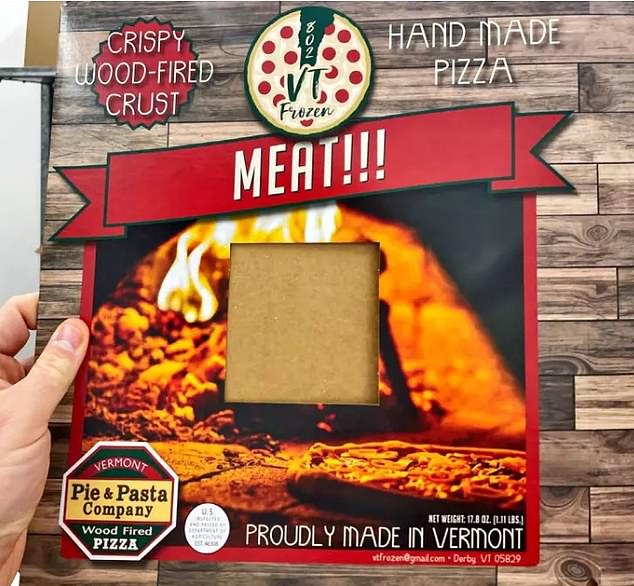- Distributed to Connecticut, Maine, Massachusetts, Vermont, New York and others
- They contained soy, a potentially serious allergen, despite not being on the label.
- READ MORE: The first person in the world to ACTUALLY be allergic to vegetables
More than 8,000 pounds of frozen meat pizza distributed throughout the Northeast have been recalled for containing a potentially deadly allergen.
Pizzas from Vermont-based food producer 802 VT Frozen distributed pizzas to grocery stores, including Walmart, that contained soy even though they were not labeled as such, potentially putting many consumers at risk of anaphylaxis.
The pizzas were shipped to grocery stores in Connecticut, Maine, Massachusetts, New Hampshire, New York, Rhode Island and Vermont.
People who purchased them are advised to throw away or return for a refund any pizza with an expiration date between April 25, 2024 and April 25, 2025.
Soy is a common food allergy that affects children the most and its consumption can cause symptoms such as hives, vomiting, wheezing and diarrhea or, in rare cases, anaphylaxis, which is a life-threatening reaction.
Pizza boxes affected by the recall will be stamped ‘EST. 46308’ within the USDA inspection mark
It is estimated that about 50 million Americans have some type of food allergy, and about 0.4 percent of children have a soy allergy.
Most will outgrow the allergy, but some, although it is not known how many, will have it into adulthood.
A report from the American College of Allergy, Asthma and Immunology found that 45 percent of people experience the onset of at least one food allergy after age 17.
802 VT Frozen pizzas come in 17.8 oz. Cardboard box containing “802 VT FROZEN MEAT!!! CRISPY PIZZA HANDMADE WITH WOOD DOUGH” on the front.
Pizza boxes affected by the recall will be stamped ‘EST. 46308’ within the USDA inspection mark.
The mislabeled pizzas were detected by the Department of Agriculture’s Food Safety and Inspection Service (FSIS), which, during routine verification activities, found that the product contained soy even though the label did not include the ingredient.
According to the USDA: ‘There have been no confirmed reports of adverse reactions due to consumption of this product. Anyone who is concerned about an illness should contact a healthcare provider.’
While no illnesses or allergic reactions related to the pizzas have been reported, incorrect labeling can erode public trust.
And while the recalls indicate that the food safety system is working, they occur long after many of the recalled products have been purchased. What’s more, many people may not know about the recall unless they are glued to the news or press releases from the FDA or USDA.
More than 300 food recalls were issued in 2023, and almost half were caused by allergens not disclosed on packaging, such as nuts, sesame and wheat.
These are the highest levels the United States has recorded since the beginning of the pandemic. Contaminated or mislabeled food caused six deaths and more than 1,100 illnesses that year.


